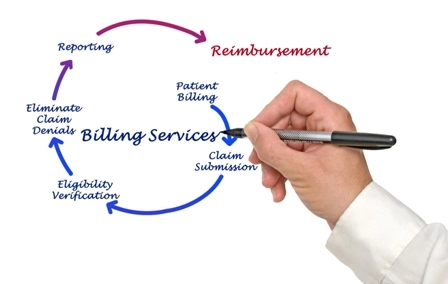Get to Know What Other Payers Think About Using ICD-10

Worried about the stand the Auto Insurance Carriers (PIP, MedPay) and Worker’s Compensation Insurance would take as ICD-10 gets implemented? Unfortunately, while we know a good deal about Medicare, there is little information about the transition plans of other payers.
“Practitioners need to do their homework and be prepared,” says Doreen Boivin, CPC, CCA, with Chiro Practice, Inc., in Saco, Maine “If WC and PI carriers don’t switch over to ICD-10 it just means a little more work on the back end to get the claims out the door.” To get a clearer picture, read on.
Auto and Worker’s Comp May Administer Chiropractic Claims Differently
To begin with, chiropractors are not contracted by (WC, PI) so right from the start, the relationship is different. There stands no contractual obligation. In some cases, there is no published fee schedule. While some payers may choose to follow similar payment guidelines as Medicare, it is not obligatory on their part. Similarly, a WC carrier may publish its fee schedule if it chooses; but it also may have its own policies.
What this means: The ICD-10 coding scenarios will be a little different for PI and WC than for Medicare and commercial payers.
Secondly, even the code set that the payers recognize may stand apart. For example, WC or PI carrier can limit the number of codes that they will approve payment for. Or they may allow more. “This could impact the revenue for the practice,” advises Boivin. “Prepare ahead and be ready.”
Will Auto and WC Use ICD-10 at All?
Although some carriers think being non-HIPPA covered entity exempts them from ICD-10, there is logic in the fact that they will have to adopt ICD-10 eventually. Here are a few reasons why:
1. Simplicity: When everyone else would be coding in ICD-10, a WC or PI payer choosing to remain in ICD-9 will complicate processes, also burdening the HIPPA covered entities to maintain two systems. Maintaining two code systems consistently will be a mess that even a payer will likely want to avoid.
2. Cost effectiveness: Using ICD-9 would eventually cost them more money. Over time, as ICD-10 takes roots, there will be no need to maintain the vintage ICD-9 system – unless a payer was hoping to use both systems. So, even financially, it will seem logical that the payer eventually focuses on the ICD-10 code set.
3. Communication problems: Since the nature of the injury may demand interdisciplinary care, even WC and PI payers may need to use ICD-10 in the future. For instance, the victim of an accident may first be admitted in a hospital where they follow ICD-10, and then to a private physician who also uses ICD-10. Here, if the auto insurance insists on ICD-9, there occurs a communication gap. Likewise, when it comes to subrogation or exhaustion of benefits, an auto carrier may defer the claim to secondary payers. However, to do so the secondary payer needs to communicate with the primary payer for the details of the processing. Using ICD-10 would help in better communication across the payers.
4. State rules: In terms of Worker’s Compensation, some WC carriers may inevitably have to adopt ICD-10 to comply with the states statutes and regulations. Given these facts you should count on them to use ICD-10 codes sooner or later.
Regence Clarifies Chiropractic ICD-10 Implementation Questions
In a recent announcement in The Connection Newsletter, Regence BCBS revealed some details ICD-10. Here are some highlights:
No changes to pre-authorization: The Regence is not changing its pre-authorization process so in case you submitted a request prior to Oct.1, you do not need to submit a new one now. Regence BCBS will continue to receive pre authorizations even sixty days prior to service. Remember to use ICD-10 codes when submitting the pre-authorization requests after Oct.1.
No grace period: Regence is not participating in and is not impacted by Medicare’s announcement to implement the 12 months grace period. Remember to bill your claim with the codes with the highest level of specificity known at the time of each health care encounter. “No one that I know of besides Medicare is giving any grace period,” discloses Boivin.
As of Oct. 1, 2015, payers such as Geico and State Farm are also to accept ICD-10 claims as indicated on their corporate websites.
The road ahead: Based on this rationale, it is wise to act on the premise that all auto insurance carriers will transition to ICD-10. “Act as if everyone is transitioning to ICD-10. You will be better prepared all around,” advises Boivin.




